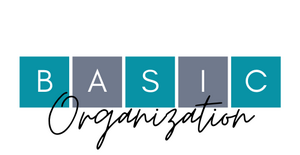To Keep or To Toss? Your Important Documents
What important documents do you need to keep and for how long? That is the question – to keep or toss? It’s an issue that many people have. They don’t know, so they keep way more than necessary. A great list of 10 questions to assist in determining the correct answer for you is from Julie Morgenstern’s book, Time Management From The Inside Out.
The Ten Questions
- Are there tax/legal reasons to keep it?
- Do I refer often to this piece of paper?
- Will it help me complete a project I am working on right now?
- Do I have time to do anything with this piece of paper?
- Does it tie in with the core activities of my job?
- Do I trust that the information is up to date?
- Does it represent a viable business opportunity?
- Will it help me make money?
- Would my work suffer if I didn’t have it?
- If I ever needed it again, could I easily get it from someone else?
Another aspect you should consider is how you are going to keep your important documents. A basic filing systems should be adequate for most people, with a folder for each type of document that you are keeping. As an example you can keep all taxes paperwork for a single year in one folder. At work, you should have folders for each project you are working on. Of course, if you’ve gone digital you should manage you computer files in a similar fashion, with folders for every category you need. One great benefit of being digital is that you can have as many sub-folders inside a folder as necessary to keep things in order.
Subscribe by email
Enter your email address to subscribe to this blog and receive notifications of new posts by email.
Janet Schiesl

Janet has been organizing since 2005. She is a Certified Professional Organizer and the owner of Basic Organization.
She loves using her background as a space planner to challenge her clients to look at their space differently. She leads the team in large projects and works one-on-one with clients to help the process move quickly and comfortably. Call her crazy, but she loves to work with paper, to purge what is not needed and to create filing systems that work for each individual client.
Janet is a Past Board Member of the National Association of Productivity and Organizing Professionals and a Past President of the Washington DC Chapter of NAPO were she has been named Organizer of the Year and Volunteer of the Year.

Janet Schiesl
Janet has been organizing since 2005. She is a Certified Professional Organizer and the owner of Basic Organization.
She loves using her background as a space planner to challenge her clients to look at their space differently. She leads the team in large projects and works one-on-one with clients to help the process move quickly and comfortably. Call her crazy, but she loves to work with paper, to purge what is not needed and to create filing systems that work for each individual client.
Janet is a Past Board Member of the National Association of Productivity and Organizing Professionals and a Past President of the Washington DC Chapter of NAPO were she has been named Organizer of the Year and Volunteer of the Year.

Decisions about what paperwork to keep can be the most stressful. There is often this resident fear of tossing something that will be required in the future (particularly by the IRS!). I love this list because it not only addresses that concern, but it also helps us to really think through the reasons for keeping documents. There are actually multiple reasons why we might want to keep a piece of paper. Asking these questions will also help us to more easily see the ones that can go.
Thanks Seana. I run across clients all the time that keep paper “just in case”, but we all know they almost never need that paper again.
Great list! We can probably get rid of about 80% based on this list. Most of the paperwork I have is really old because I now think about these questions before I file something.
Part of the 80/20 rule. We need 20% of the paper we are keeping 80% of the time. So you really can let it go.
Great list of questions! I tend to keep papers longer than I need to, but being a small business owner, I tend to keep things because they are backup paperwork for my taxes. My rule of thumb is if it is older than seven years, I allow myself to let it go. Thanks for sharing.
Good rule Sabrina. The 7 year rule works for most things, since people usually keep things just in case the IRS comes calling.
This is a wonderful list of questions to ask your self when assessing what to do with a document. I also follow the 7 year rule, but I have worked with clients who’s paper dates back decades. It is a good idea to go through your paper files annually to weed out the things that you are ready to toss.
Nancy, I also like the idea of reviewing your papers each year to declutter your file cabinet. I usually do my review after I have paid my taxes.
Hi Janet,
This is such a great topic. I’ve probably been asked that same question more than any other, “What if I need it one day?” Who hasn’t considered the perils of tossing something? All of us have.
When I moved from my home of many years, I dreaded going through all my files. Everything I collected over the years. Children, medical, home, business, etc. Since I was downsizing, I was able to reduce my load from 6 files to 2. The reality is, I cannot remember what was in the other 4 files and I don’t want to.
Thank you!
Great job Ronni. Aren’t you glad that you let go of all that paper? It funny how we all hang on to stuff that we don’t need.